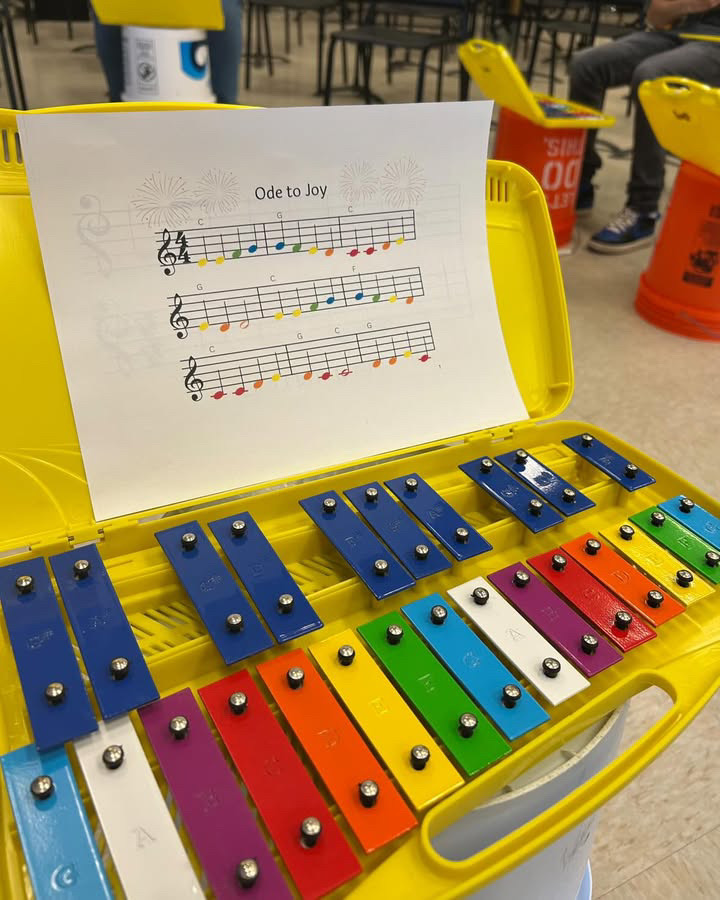The Board of Education voted to pass an amendment to the current MCPS homework policy, June 25. The proposed new policy includes provisions requiring teachers to allocate in-class time for completing homework assignments and regulating the amount of homework teachers can assign over the weekend.
The Board of Education Policy Management Committee met May 16 to discuss potential changes to the current homework policy after receiving feedback from the MCPS community between March 20 and April 24.
The former homework policy, last revised in 1986, requires that kindergarten through 8th grade students receive homework three to five times a week. The policy also mandates that teachers not assign homework on designated religious holidays. Additionally, homework must relate to instructional objectives, accommodate differences among students, include opportunities for skill development and allow for make-up assignments with teacher assistance where necessary.
2023-2024 Student Member of the Board (SMOB) Sami Saeed strongly supported the new policy during a Policy Management Committee meeting, taking into account the student feedback.
“That weekend time is really the only time a lot of students get, especially for students taking rigorous courses,” Saeed said during the meeting. “We want to make a balance between giving teachers autonomy to assign homework but also a break that they deserve especially during the mental health crisis we have right now.”
Junior Zack Duva takes multiple AP classes and plays on a competitive sports team. Duva feels he receives excessive homework, which contributes to unnecessary stress.
“It kind of takes up a lot of my time which I can use towards other things to relieve some of the stress,” Duva said. “There’s a lot of other things such as the SAT and AP tests, where you could study for those while also having to keep up with homework.”
According to a study done by a Stanford University researcher, students find that homework significantly contributes to the current mental health crisis, with 56% of surveyed students considering homework a primary source of stress.
Sophomore Ethan Stearns, who finds homework more manageable and values its importance, believes the policy change was unnecessary and excessive.
“The point of homework is that you do it at home,” Stearns said. “It’s important so you can keep up and understand the content.”
Under the new policy, teachers must excuse all work missed due to religious observances, provided the assignments are not essential to completing the course, ensuring that students can practice their religion without compromising their education.
Sophomore Simone Yohanes is concerned about how MCPS plans to enforce the policy change, especially the religious opt-out policy.
“That would definitely create a loophole,” Yohanes said. “That’s my first thought of people abusing that right.”
Students across MCPS have requested flexible policies to help them manage their workload, as shown by public comments when the Board of Education released the policy for feedback. However, some board members explained during the Policy Management Committee meeting that these policies might foster a sense of false freedom among students.
Board member Brenda Wolff highlighted the concern that if the policy becomes too forgiving, it might leave students unprepared for future challenges.
“The purpose of education is to teach life skills,” Wolff said during the committee meeting. “It seems to me that we’re moving further and further away from teaching kids skills that they will need in college.”
The new homework policy attempts to address the concerns highlighted by student comments, while also keeping in mind their futures and the impact that homework has on them, as shown by the discussions during the Board meeting. However, some teachers tend to shy away from assigning unnecessary homework.
AP Computer Science Principles teacher Kelsey Stender-Moore tends to shy away from assigning large amounts of homework and feels it is not impactful.
“I personally think that homework should not exist, it doesn’t have a massive impact on student performance,” Stender-Moore said. “But realistically, especially since I teach an AP class, I know that we only have 45 minutes a day.”

















